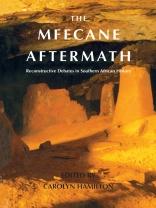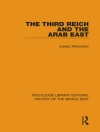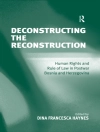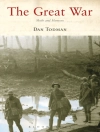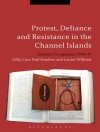The idea that the period of social turbulence in the nineteenth century was a consequence of the emergence of the powerful Zulu kingdom under Shaka has been written about extensively as a central episode of southern African history. Considerable dynamic debate has focused on the idea that this period – the ‘mfecane’- left much of the interior depopulated, thereby justifying white occupation. One view is that ‘the time of troubles’ owed more to the Delagoa Bay Slave trade and the demands of the labour-hungry Cape colonists than to Shaka’s empire building. But is there sufficient evidence to support the argument? The Mfecane Aftermath investigates the very nature of historical debate and examines the uncertain foundations of much of the previous historiography.
Spis treści
Preface Acknowledgements Notes on Orthography and Names Contributors Introduction Part One: Historiography and Methodology Putting the Mfecane Controversy into Historiographical Context Chapter 1. Pre-Cobbing Mfecane Historiography Chapter 2. Old Wine in New Bottles The Persistence of Narrative Structures in the Historiography of the Mfecane and the Great Trek Chapter 3. Hunter-Gatherers, Traders and Slaves The ‘Mfecane’ Impact on Bushmen, Their Ritual and Their Art Chapter 4. Language and Assassination Cutural Negationas in White Writers’ Portrayal of Shaka and the Zulu Part Two: The South-Eastern Coastal Region Beyond the concept of the ‘Zulu Explosion’ Comments on the Current Debate Chapter 5. Sources of Conflict in Southern Africa c. 1800-1830 The ‘Mfecane’ Reconsidered Chapter 6. Political Transformations in the Thukela-Mzimkhulu Region in the Late Eighteenth and Early Nineteenth Centuries Chapter 7. ‘The Character and Objects of Chaka’ A Reconsideration of the Making of Shaka as Mfecane Motor Chapter 8. Matiwane’s Road to Mbholompo A Reprieve for the Mfecane? Chapter 9. Unmasking the Fingo The War of 1835 Revisted Chapter 10. The Mfecane Survives its Critics Part Three: The Interior ‘The time of troubles’ Difaqane in the Interior Chapter 11. Archaeological Indicators of Stress in the Western Transvaal Region between the Seventeenth and Nineteenth Centuries Chapter 12. Prelude to Difaqane in the Interior of the Southern Africa c.1600-c. 1822 Chapter 13. Conflict in the Western Highveld/Southern Kalahari c.1750-1820 Chapter 14. ‘Hungry Wolves’ The Impact of Violence on Rolong Life, 1823-1836 Chapter 15. The Battle of Dithakong and ‘Mfecane’ Theory Chapter 16. Untapped Sources Slave Exports from Southern and Central Namibia up to c.1850 Glossary Abbreviations Bibliographer’s Note Bibliography Complete List of Papers Presented at the Colloquium Index
O autorze
Dan Wylie is a lecturer in the English Department at Rhodes University, Grahamstown. He has published three books on the Zulu leader Shaka; a memoir, Dead Leaves: Two Years in the Rhodesian War; and several volumes of poetry.
